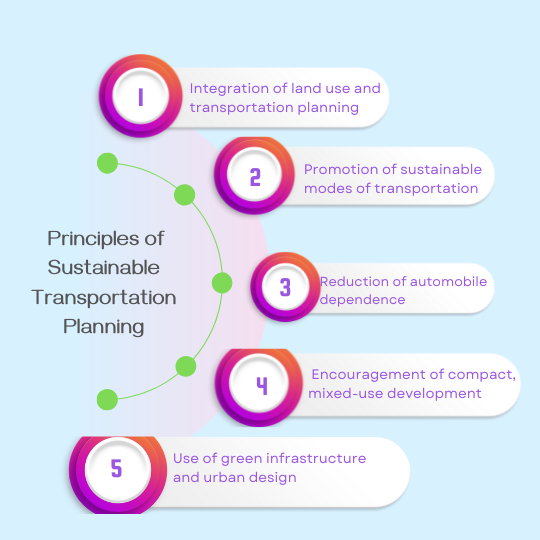Sustainable Transportation Planning: Strategies for Reducing Greenhouse Gas Emissions in Urban Areas
Keywords:
Congestion Charge, Electric Vehicles, Government Officials, Greenhouse Gas Emissions, Sustainable Transportation Planning, Urban AreasAbstract
Sustainable transportation is a crucial aspect of reducing greenhouse gas emissions and promoting a more sustainable future. This study aimed to explore strategies for reducing greenhouse gas emissions in urban areas through sustainable transportation planning. A comprehensive review of literature was conducted to identify effective strategies and policies that can be implemented to achieve this goal. The findings revealed that promoting the use of public transportation, non-motorized transportation, and electric vehicles can significantly reduce greenhouse gas emissions in urban areas. In addition, implementing a congestion charge and improving urban planning by promoting mixed-use development and walkability can also contribute to this goal. Furthermore, promoting telecommuting was found to be an effective strategy for reducing the need for car travel, which can in turn reduce greenhouse gas emissions. The study suggests that sustainable transportation planning requires a comprehensive approach that takes into account the needs of all stakeholders, including government officials, transportation planners, businesses, and residents. The findings of this study have important implications for policymakers and transportation planners seeking to develop sustainable transportation plans that can contribute to a more sustainable future.

Downloads
Published
How to Cite
Issue
Section
License
Copyright (c) 2021 Author

This work is licensed under a Creative Commons Attribution-NonCommercial-NoDerivatives 4.0 International License.
Creative Commons licenses are used to publish Open Access articles, which provide the legal basis for users to access, distribute, and reuse the content. EQME allows authors to apply one of the following Creative Commons licenses to their work, each of which affords readers distinct rights in terms of commercial use and the capacity to create derivative versions:
CC-BY (Creative Commons Attribution License)
CC-BY-NC-ND (Creative Commons Non-Commercial No Derivatives License)
CC-BY-NC-SA (Creative Commons Non-Commercial Share-a-like)
In each situation, the creator must be given credit, and if derivative versions of the work are created, the alterations must be noted.






